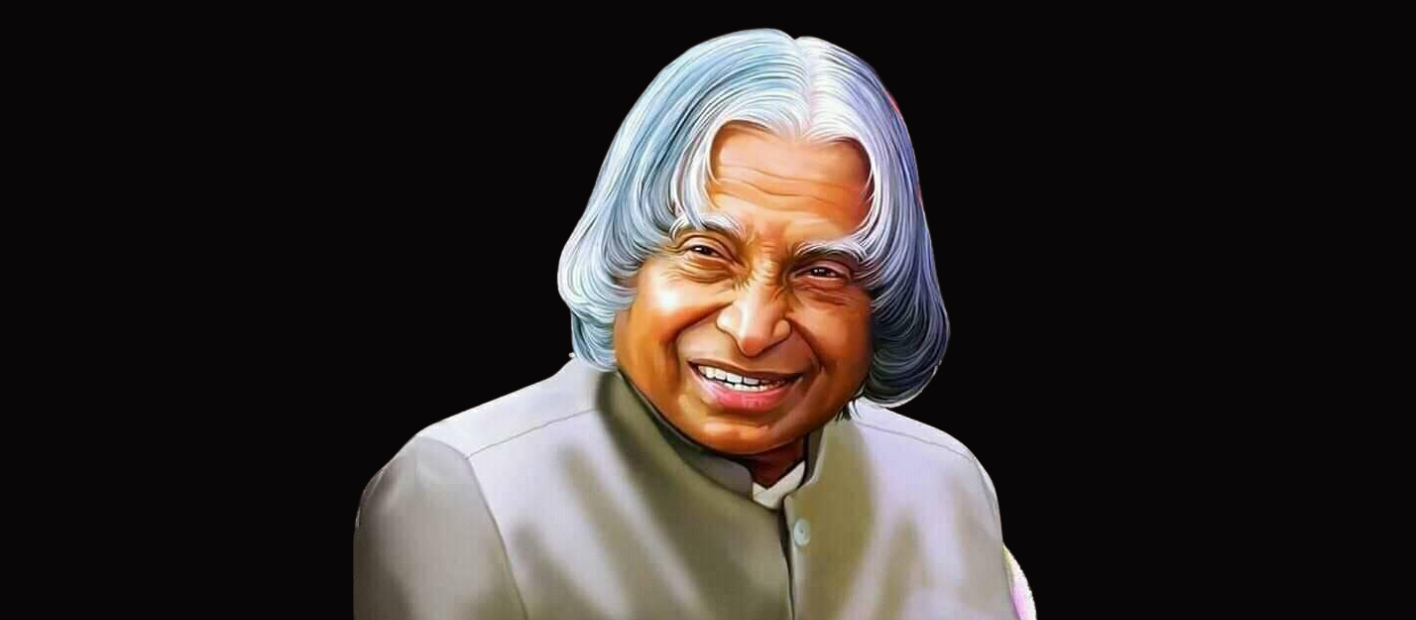A.P.J. Abdul Kalam: How to Pursue Dreams Through Dedication and Humility
Introduction
A.P.J. Abdul Kalam, India’s “Missile Man” and the 11th President, was a beacon of inspiration for millions. Known for his humble background, visionary mind, and relentless dedication to science and education, Kalam’s life journey exemplifies the power of hard work, perseverance, and simplicity. His story demonstrates that dreams are achievable for anyone who is determined and remains grounded. In this article, we explore Kalam’s life, values, and how his dedication and humility became the driving force behind his monumental achievements.
Early Life: Dreams Born from Humble Beginnings
Born on October 15, 1931, in Rameswaram, Tamil Nadu, into a modest family, A.P.J. Abdul Kalam’s early life was not one of privilege. His father was a boat owner, and his mother a homemaker, but their strong values of hard work and humility laid the foundation for young Kalam’s future.
Even as a child, Kalam was fascinated by science and the mechanics of flight. His curiosity about how things worked drove him to read voraciously and dream of contributing to the field of aeronautics. However, the path was not easy. Financial hardships meant Kalam had to work alongside his studies, delivering newspapers in his small town. Yet, it was this very hardship that instilled in him the virtues of perseverance and the importance of education as a tool for empowerment.
Dedication to Education: The Foundation of Success
One of the key pillars of A.P.J. Abdul Kalam’s success was his unyielding dedication to education. Despite the financial difficulties, Kalam never wavered in his pursuit of knowledge. He earned a degree in Physics from St. Joseph’s College, Tiruchirappalli, and went on to study aerospace engineering at the Madras Institute of Technology (MIT). His educational journey was filled with challenges, but Kalam’s determination to excel in his field was unwavering.
Kalam’s dedication to his studies exemplified his belief that education is the cornerstone of all dreams. He often said, “Education is the most powerful weapon which you can use to change the world.” This quote encapsulates his view on the transformative power of learning.
Striving for Excellence: The Path to Becoming the “Missile Man”
A.P.J. Abdul Kalam’s professional career began at the Defense Research and Development Organization (DRDO) and later at the Indian Space Research Organisation (ISRO), where he played a pivotal role in India’s space and defense advancements. He was instrumental in the development of India’s first satellite launch vehicle, which successfully deployed the Rohini satellite in orbit in 1980.
Kalam’s unwavering focus on excellence and his tireless efforts in research and development earned him the nickname “Missile Man of India.” His leadership in the development of ballistic missile technology, including the Agni and Prithvi missiles, transformed India into a self-reliant power in defense. His achievements were not merely technical but a manifestation of a larger dream to see India as a leader on the global stage.
Through sheer dedication, he pushed the boundaries of science and technology, proving that with hard work and a clear vision, even the loftiest of goals can be achieved.
Humility in Leadership: A Lesson in Modesty
While A.P.J. Abdul Kalam’s professional achievements were extraordinary, what set him apart as a leader was his humility. Despite his stature as one of the most respected scientists in the country and later as the President of India, he remained approachable, down-to-earth, and deeply connected with people.
His tenure as President from 2002 to 2007 was marked by an emphasis on uplifting the youth and encouraging them to dream big. He often met with students, listened to their aspirations, and motivated them to take up careers in science and technology. In his speeches and interactions, Kalam made it clear that his success was not a result of individual brilliance but a collective effort of teamwork and support from mentors and colleagues.
Even after his presidency, Kalam continued to dedicate his life to the service of the nation, especially through education. He could often be seen delivering lectures to school and college students, urging them to dream big and never give up. His humility shone through in every aspect of his life, as he credited his success to the people who helped him along the way and remained focused on contributing to the greater good.
Dedication to National Development: A Visionary for India
Kalam was not just a scientist; he was a visionary who dreamed of a developed India. His blueprint for the country’s future was outlined in his famous book, India 2020: A Vision for the New Millennium, where he envisaged India becoming a knowledge superpower by 2020. He believed that by empowering the youth, advancing technology, and addressing the socio-economic challenges, India could transform itself into a prosperous and self-reliant nation.
One of his most famous speeches, “Dream, dream, dream. Dreams transform into thoughts and thoughts result in action,” encapsulates his belief in the power of dreams. His dedication to his dream of a developed India was reflected in his consistent push for advancements in technology, education, and defense.
Kalam’s contribution to India’s nuclear program, particularly the Pokhran-II nuclear tests in 1998, solidified India’s position as a nuclear power. However, he always maintained that these achievements were a means to secure peace and stability for the nation, showcasing his deep sense of responsibility and ethical leadership.
Humility in Personal Life: Staying Grounded Amidst Success
Despite his towering achievements, A.P.J. Abdul Kalam lived a life of simplicity. He lived modestly, owned no property, and donated most of his earnings to charitable causes. His personal life was a reflection of the values he stood for – humility, selflessness, and a deep sense of duty toward the country.
Even during his presidency, he did not allow the trappings of power to affect him. He preferred to stay connected with ordinary people and always found time to meet students, visit educational institutions, and encourage innovation at the grassroots level. His lifestyle was a reminder that true success is measured not by material wealth but by the positive impact one leaves on others.
Kalam’s Legacy: Inspiration for Future Generations
A.P.J. Abdul Kalam’s legacy extends far beyond his scientific achievements and presidential tenure. He remains an enduring symbol of what can be achieved through hard work, humility, and a relentless pursuit of dreams. His life is a testament to the power of perseverance, and his teachings continue to inspire millions to this day.
Kalam’s influence on India’s youth is perhaps his greatest legacy. His message of dreaming big and working hard resonates with generations of young Indians who see in him a role model for overcoming adversity. His books, including Wings of Fire and Ignited Minds, serve as guides for students and professionals alike, offering lessons in leadership, dedication, and ethics.
Conclusion
A.P.J. Abdul Kalam’s life serves as a powerful example of how dreams can be pursued through dedication, humility, and hard work. From his humble beginnings in Rameswaram to becoming India’s “Missile Man” and a beloved President, his journey is an inspiration for millions. His vision for India, his love for science, and his commitment to education continue to shape the nation’s future. Above all, Kalam’s life teaches us that with the right values and determination, no dream is too big to achieve.





